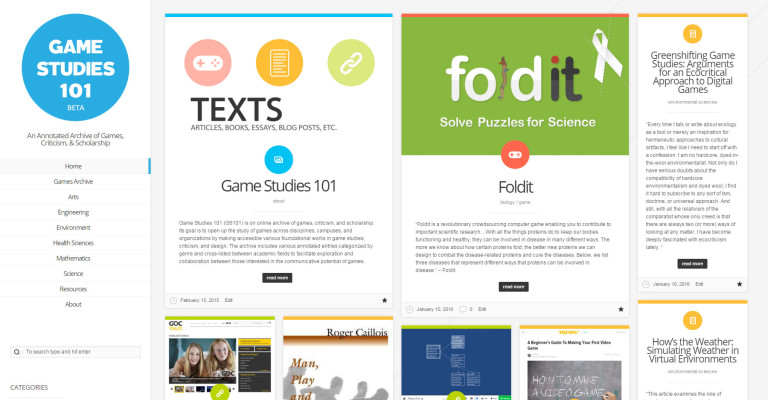Below you’ll find various projects, including games I’ve developed as community-based research, websites created for the game studies/game design community, and events around meaningful uses of game design and play to engage, inform, and empower designers, players, and social citizens.
Community-based Research
Responding Safely to Family Violence (VEGA Project)
In collaboration with researchers and practitioners at VEGA (Violence, Evidence, Guidance, Action) I designed two learning modules based on responding to family violence. This project unfolded over a three year period, involving research into family violence, consultations with healthcare providers, and playtesting with stakeholders. The game adopted the ‘Recognize, Respond, and Refer’ model to guide learners through the steps of addressing family violence in clinical environments. The interface allows learners to research signs of family violence, recognize them in a simulated clinical environment, and try various methods for responding safely.
Both modules were then developed by Stitch Media for VEGA and are incorporated into McMaster University’s family violence educational resources.
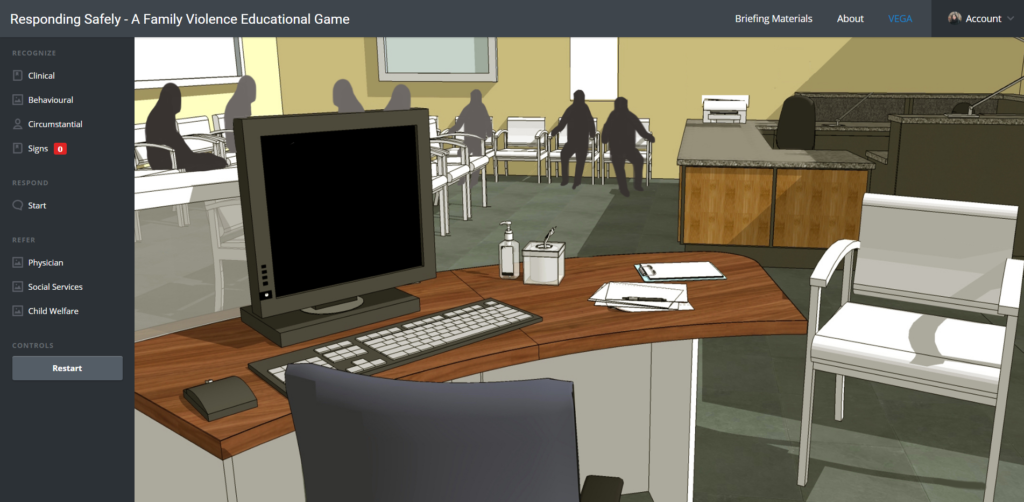

Stigma in Sexual Healthcare (Canadian Public Health Association)
Working with public health experts at the Canadian Public Health Association, I designed two modules addressing biases in sexual healthcare, including discrimination in terms of gender, race, sexual orientation, and substance use. These modules iterated upon the VEGA interface, further integrating the player’s active engagement with the materials into the options and outcomes of the game.
As with the VEGA Project, these modules were then developed by Stitch Media. They are available as part of the CPHA’s online training materials for healthcare providers.
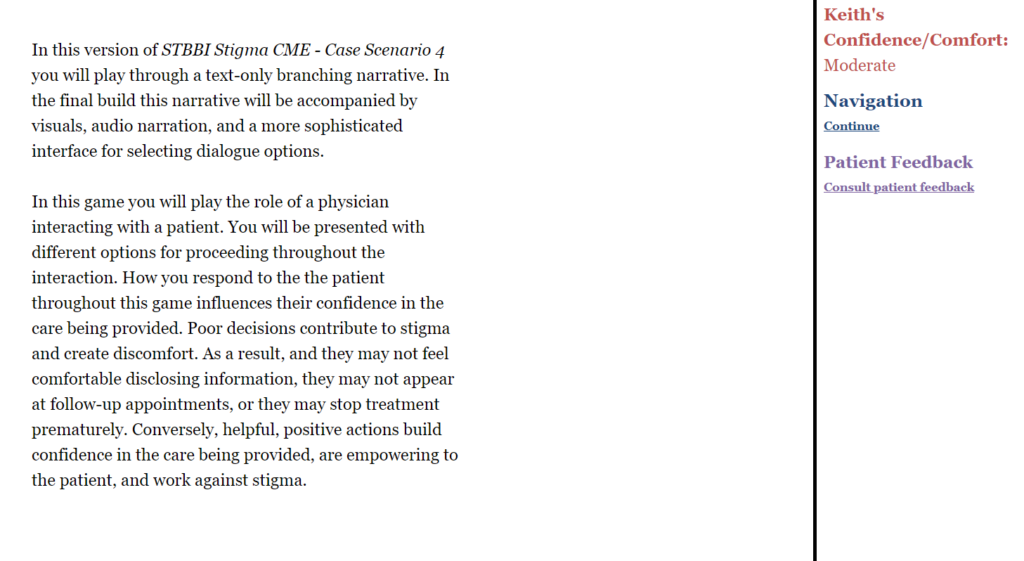
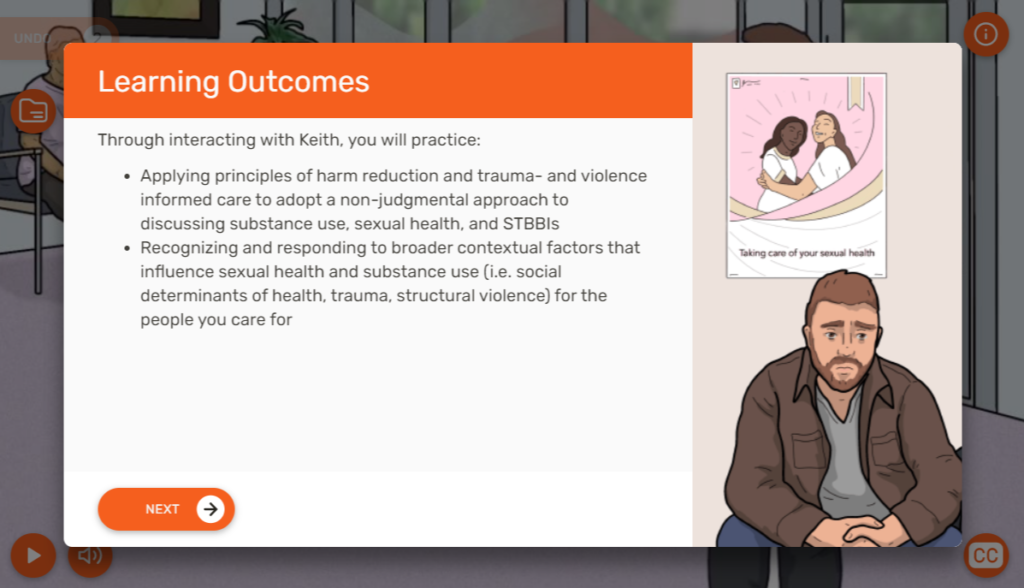
Young Adults and Diabetes Self-Management (SickKids)
This project brought together child psychologists, diabetes researchers, and experts from SickKids (The Hospital for Sick Children) to develop a game that eases the transition from collaborative, familial management of diabetes to independent management. The vision here was to tell an intriguing detective story of a young adult, Alex Cade, who leaves home to attend post-secondary school. Rather than a didactic approach that focused exclusively on diabetes management (and thus risk reducing a multifaceted character to their medical status), players need to solve the underlying mystery while successfully monitoring their blood sugars, balancing their dietary decisions, and reacting to challenging situations for young, independent diabetics.
While the project is currently on hiatus, an advanced prototype has been developed with artwork from graphic designer and artist Keith Mclean.
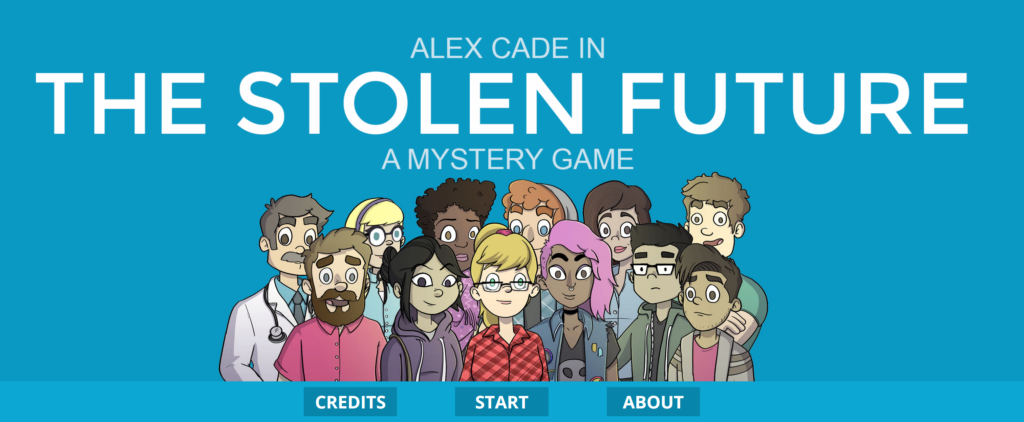
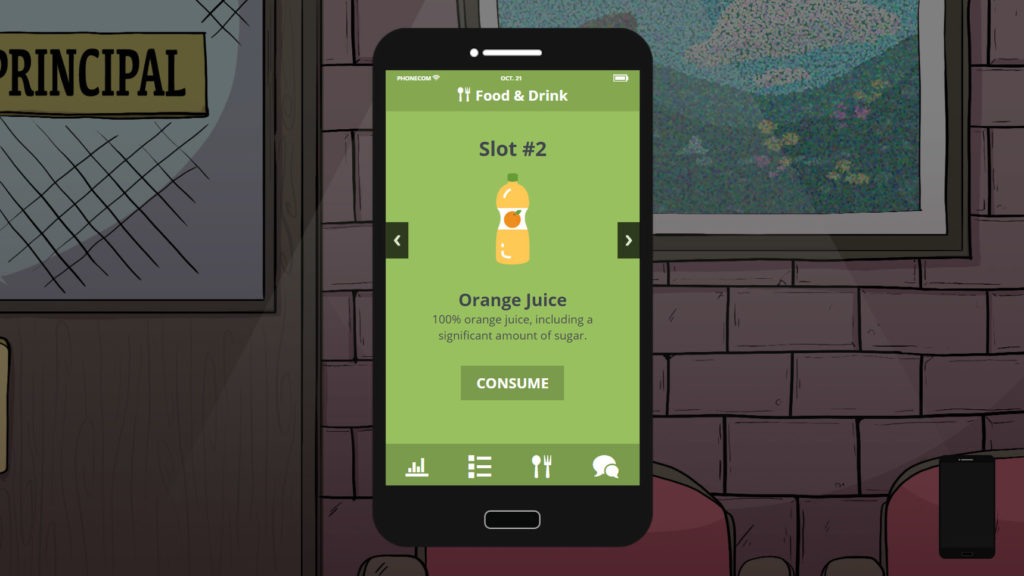
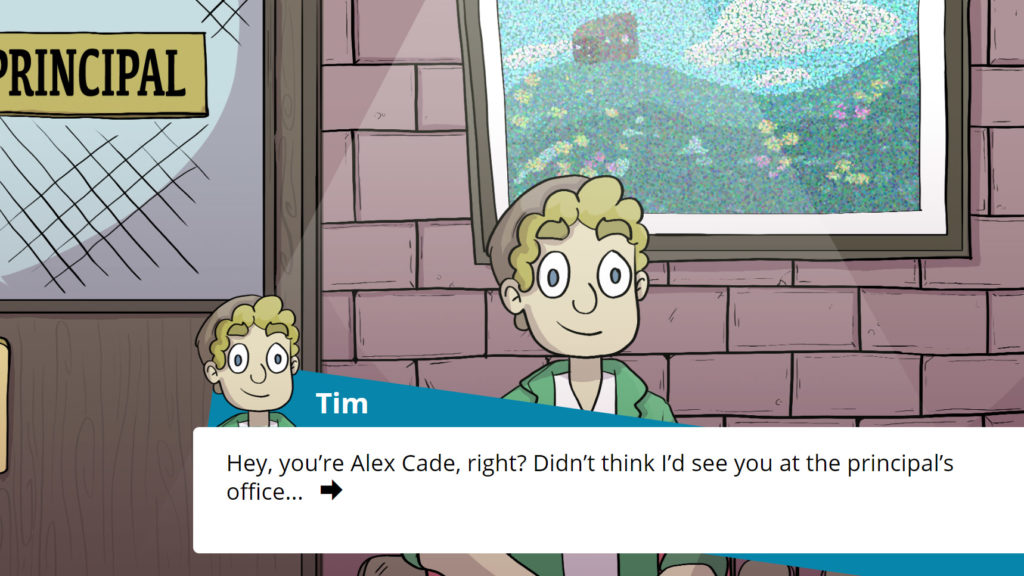
SSHRC-funded Research
Biases in Healthcare (Canadian Public Health Association) (Connection Grant)
Through this SSHRC Connection grant with the Canadian Public Health Agency, a print-and-play game was designed and developed with a team of students from the game design. Players learn about biases that inhibit access to sexual health services due to gender, race, sexual orientation, class, and lifestyle. The game is intended to generate dialogue about solutions for destigmatizing sexual health amongst healthcare providers.
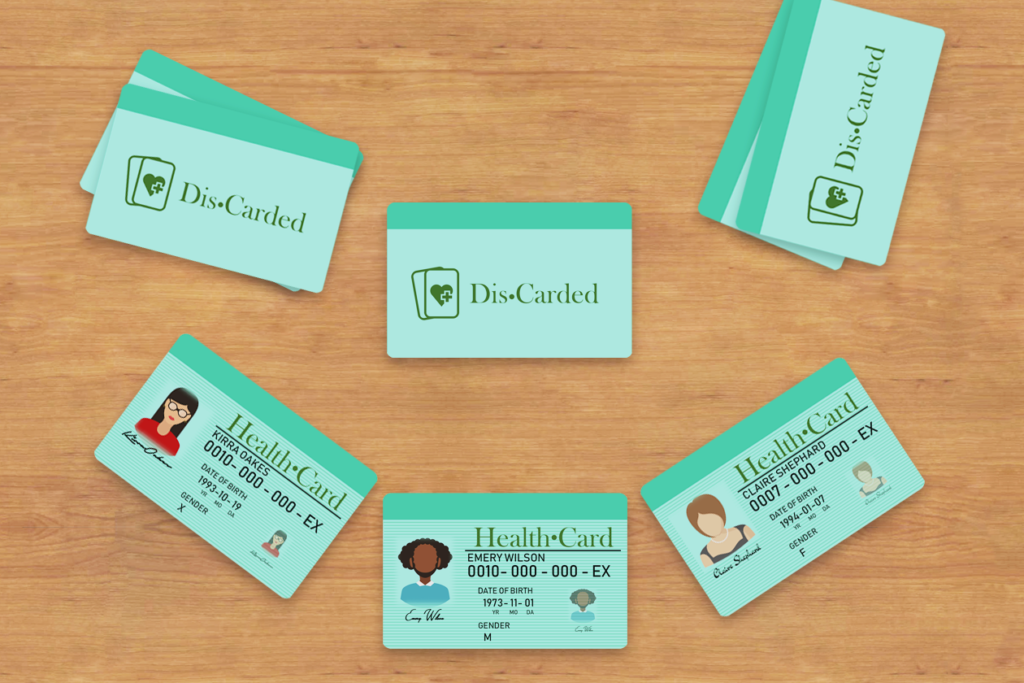
Crowdsourcing Rhetorical Figures Through Play (Insight Grant)
As a co-applicant on this Insight Grant ($150,000) I led a team of students as we designed an online game for crowdsourcing rhetorical figures. The goal of the project as a whole was to create a database of rhetorical figures for machine learning purposes. The game used a narrative mystery of an unknown civilization trying to communicate with us by learning through our patterns of communication (i.e. rhetorical figuration). Puzzles and an emergent narrative encouraged players to continue participating in the game, while also building up the database of figures.
Websites
First Person Scholar
I co-founded and was the first editor-in-chief of First Person Scholar, a middle-state publication that fosters accessible conversations on the study and design of games. The site is home to essays, commentaries, and book reviews from graduate students to more established game scholars on the design of games, their cultural impact, and the role they play in our lives. [Link]
Game Studies 101
Starting as a HASTAC project, Game Studies 101 has become a popular introductory site for games criticism, journalism, and scholarship. The site serves as a repository for formative and accessible journal articles, critiques, books, videos, and games. One of the goal’s of the site is to subvert the traditional ‘canon’ of games scholarship by drawing from a wide array of sources to present a range of accessible entry points into studying, critiquing, and creating games. [Link]
Games
Lootcrative (2018)
‘Didn’t get the loot you wanted? Better luck next time!’ In Lootcrative! players distribute good and mediocre ‘loot’ into videogame lootboxes, trying to find the right ratio to drive up sales and increase revenues. The game demonstrates Skinner’s variable ratio, a means of distributing rewards in a planned but unpredictable manner that can reduce inhibitions and in the case of lootboxes, increase sales. In true lootbox fashion, players of Lootcrative! earn LootBucks that they can then spend on their own lootboxes.
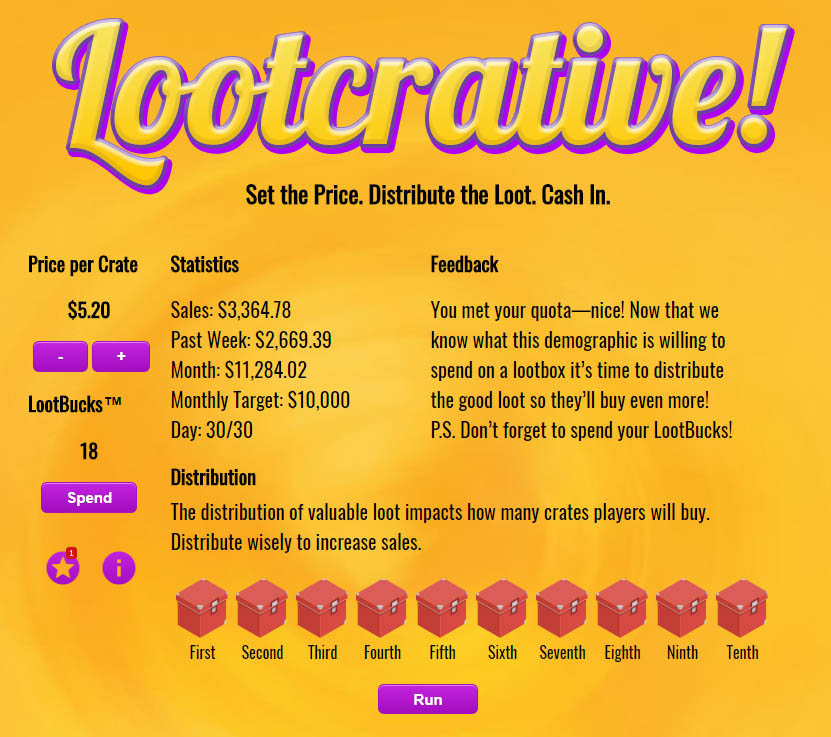
Papers, s’il vous plaît (2017)
Created for #ResistJam, Papers, s’il vous plaît addresses immigration, discrimination, and cultural values in Canada. The game takes place during a hypothetical 2019 federal election where the winning party successfully ran on a populist platform. As an employee of Citizenship and Immigration Canada you are tasked with grading the newly implemented Canadian Values tests—an additional screening measure imposed by the new administration to evaluate the ‘values’ of prospective immigrants. Players never see the would-be Canadians whose lives they are shaping; instead they encounter only the impersonal bureaucracy of paperwork and answer keys, all the while those ‘values’ they are tasked with evaluating seem to shift and change to suit some larger agenda. [Link]
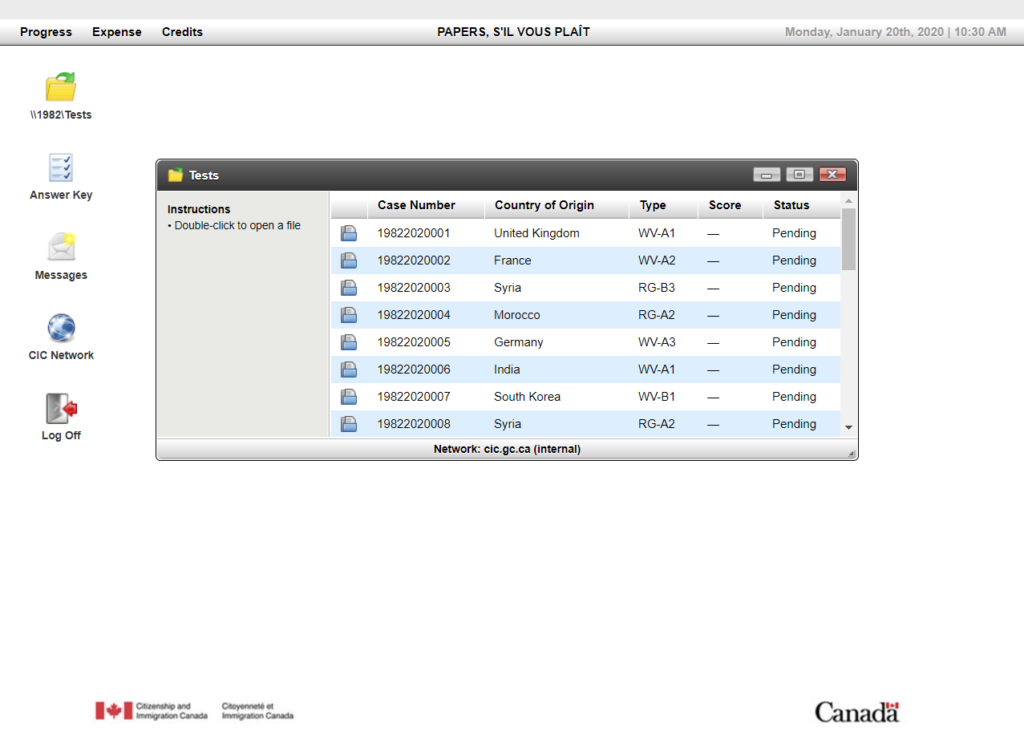
Allergory (2017)
Allergory is a web-based game that provides insight into the social, cultural, and emotional experience of life with a serious food allergy. The game served as a portion of my dissertation as it relates to my research on using multimodal media to translate knowledges between audiences. The game was a collaboration between myself and researchers at GET-FACTS (Genetics, Environment and Therapies: Food Allergy Clinical Tolerance Studies). GET-FACTS is a Canadian Institutes of Health Research-funded knowledge mobilization initiative that raises awareness of food allergies in Canada. [Link]
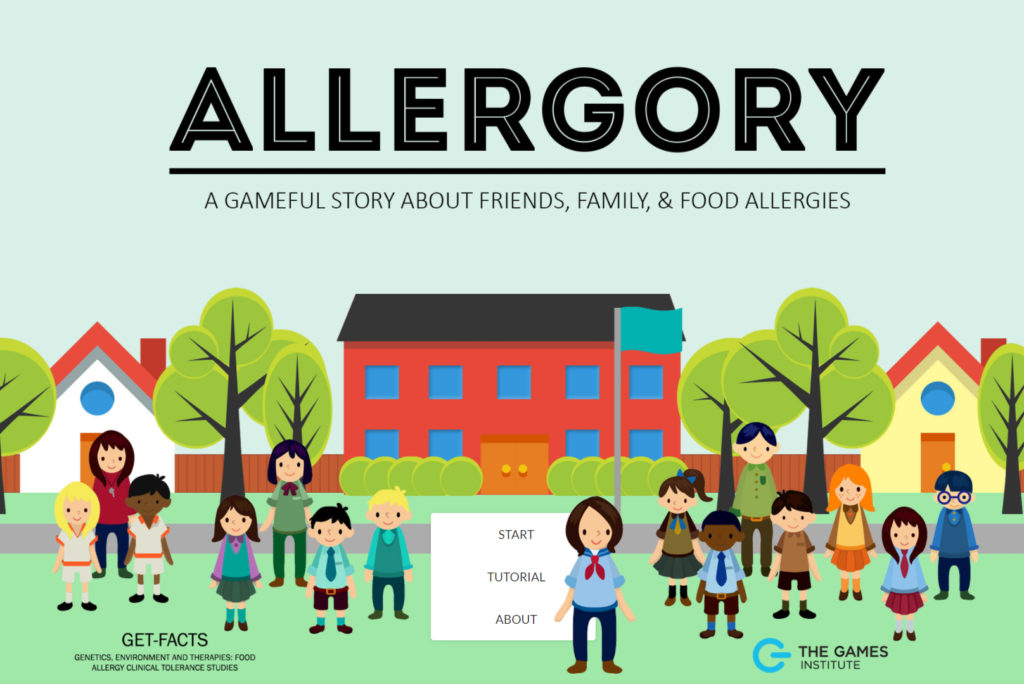
The Bureau (2011)
This web-based game was inspired by Edgar Allan Poe’s The Purloined Letter in which the titular letter was ‘hidden’ in plain sight on the thief’s desk or bureau. Taking up this idea in a twenty-first century context, I created a mock-up the desk of a Federal Bureau of Investigation agent. From a top-down perspective players had access to a tablet and a cell phone. Over the course of 8 weeks events regarding a murder-mystery populated the devices in real-time. The official investigation unfolded on the tablet where players studied evidence, read emails, and used a command console to access other networks. On the cell phone events regarding the main character’s personal life unfolded concurrently. The result was a unique narrative that made use of the affordances of digital media to tell an old story in a new way.
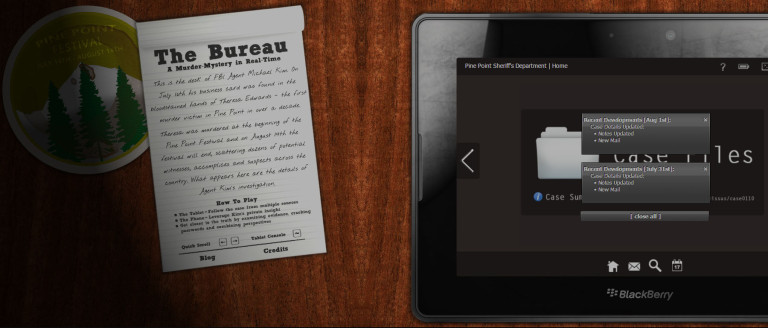
Events
Decolonization Game Jam (2019)
This game jam introduced students to colonial history in Canada as well as the colonial game mechanics that underlie popular games in the 4X genre—games built on the mechanics of exploration, expansion, exploitation, and extermination. The history portion was presented by Jaydene Lavallie who provided an overview of colonialism in North America. The jam consisted of players ‘decolonizing’ gameplay by remaking the core mechanics of 4X games like Settlers of Catan to be more sustainable, communal, and cooperative. The game jam was inspired by game designer and artist Golboo Amani and her ‘Unsettling Catan’ project,
Positive Play Game Jam (2018)
In partnership with the Canadian Public Health Association, this jam addressed issues around sexual health and healthcare. Participants included students and faculty from game design and public health, as well as community members from sexual health clinics, and experts from CPHA. The jam saw various games about barriers to sexual healthcare, social stigma and biases, as well as processes and procedures that could ease access to healthcare.

